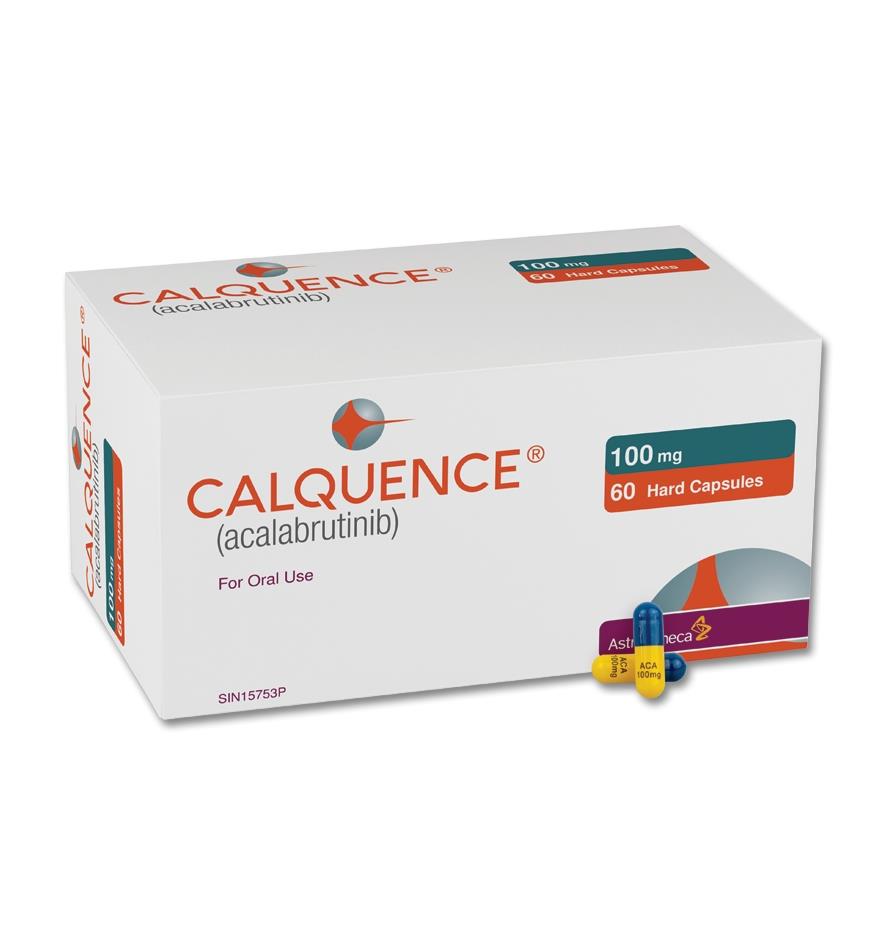Keytruda (pembrolizumab) vs Calquence (acalabrutinib)
Keytruda (pembrolizumab) vs Calquence (acalabrutinib)
Keytruda (pembrolizumab) is an immune checkpoint inhibitor, specifically a PD-1 blocker, used primarily to treat various types of cancer by enhancing the body's immune response against cancer cells. Calquence (acalabrutinib) is a Bruton's tyrosine kinase (BTK) inhibitor indicated for the treatment of certain blood cancers, such as mantle cell lymphoma and chronic lymphocytic leukemia, by interfering with the signaling that promotes cancer cell survival and proliferation. When deciding between Keytruda and Calquence, it is crucial to consider the specific type of cancer being treated, as each medication is approved for different indications and works through distinct mechanisms within the body's immune system or cancer pathways.
Difference between Keytruda and Calquence
| Metric | Keytruda (pembrolizumab) | Calquence (acalabrutinib) |
|---|---|---|
| Generic name | Pembrolizumab | Acalabrutinib |
| Indications | Various types of cancers including melanoma, lung cancer, head and neck cancer, Hodgkin lymphoma, and others | Chronic lymphocytic leukemia (CLL), small lymphocytic lymphoma (SLL), and mantle cell lymphoma (MCL) |
| Mechanism of action | Programmed death receptor-1 (PD-1) blocking antibody | Bruton's tyrosine kinase (BTK) inhibitor |
| Brand names | Keytruda | Calquence |
| Administrative route | Intravenous infusion | Oral |
| Side effects | Fatigue, musculoskeletal pain, decreased appetite, pruritus, diarrhea, nausea, rash, fever, cough, dyspnea, constipation, pain in extremity, and headache | Headache, diarrhea, bruising, fatigue, myalgia, anemia, thrombocytopenia, neutropenia, rash, and infections |
| Contraindications | Hypersensitivity to pembrolizumab or any of its excipients | Hypersensitivity to acalabrutinib or any of its excipients, severe hepatic impairment |
| Drug class | Anti-PD-1 monoclonal antibody | Small molecule kinase inhibitor |
| Manufacturer | Merck & Co. | AstraZeneca |
Efficacy
Keytruda (Pembrolizumab) Efficacy in Lymphoma
Keytruda, also known by its generic name pembrolizumab, is a type of immunotherapy that has shown efficacy in treating certain types of lymphoma. Specifically, Keytruda has been approved by the FDA for the treatment of adult and pediatric patients with refractory classical Hodgkin lymphoma (cHL), or those who have relapsed after three or more prior lines of therapy. In clinical trials, pembrolizumab demonstrated a significant response rate in these patients, with many achieving partial or complete remission of their disease. The effectiveness of Keytruda in lymphoma is attributed to its mechanism of action, which involves blocking the PD-1 pathway, thereby enhancing the body's immune response against cancer cells.
While the use of Keytruda in lymphoma has been promising, its efficacy can vary based on several factors, including the specific subtype of lymphoma and the patient's prior treatments. The response rates and duration of response also differ among individuals. Therefore, the decision to use Keytruda is made on a case-by-case basis, considering the patient's overall health and treatment history.
Calquence (Acalabrutinib) Efficacy in Lymphoma
Calquence, with the generic name acalabrutinib, is a Bruton's tyrosine kinase (BTK) inhibitor that has been approved for the treatment of adult patients with mantle cell lymphoma (MCL) who have received at least one prior therapy. The approval was based on the overall response rate observed in clinical trials, where a significant proportion of patients showed a reduction in tumor burden. Acalabrutinib has been shown to be effective in delaying disease progression and improving survival outcomes in patients with MCL, a typically aggressive form of non-Hodgkin lymphoma.
Furthermore, ongoing research is evaluating the potential of acalabrutinib in other types of lymphoma, including chronic lymphocytic leukemia/small lymphocytic lymphoma (CLL/SLL), where it has also shown promising results. As with any medication, the efficacy of Calquence may be influenced by individual patient characteristics and previous treatments. It is important for healthcare providers to assess the potential benefits and risks when considering acalabrutinib for their patients with lymphoma.
Regulatory Agency Approvals
Keytruda
-
European Medical Agency (EMA), European Union

-
Food and Drug Administration (FDA), USA

-
Health Canada

-
Therapeutic Goods Administration (TGA), Australia

-
Medsafe (NZ)

Calquence
-
European Medical Agency (EMA), European Union

-
Food and Drug Administration (FDA), USA

-
Health Canada

-
Pharmaceuticals and Medical Devices Agency (PMDA), Japan

-
Therapeutic Goods Administration (TGA), Australia

Access Keytruda or Calquence today
If Keytruda or Calquence are not approved or available in your country (e.g. due to supply issues), you can access them via Everyone.org.
How it works

Make an enquiry
Choose the medicine you want to buy, answer a couple of questions, and upload your prescription to speed things up. We’ll get back to you within 24 hours.


Make an enquiry
Choose the medicine you want to buy, answer a couple of questions, and upload your prescription to speed things up. We’ll get back to you within 24 hours.


Breeze through the paperwork
We'll guide you through the required documents for importing unapproved medicine, ensuring you have all the necessary information.


Get a personalized quote
We’ll prepare a quote for you, including medicine costs and any shipping, administrative, or import fees that may apply.


Receive your medicine
Accept the quote and we’ll handle the rest - sourcing and safely delivering your medicine.

Some text on this page has been automatically generated. Speak to your physician before you start a new treatment or medication.
Let's talk
If you have any questions, call us or send us a message through WhatsApp or email:
Contact us




